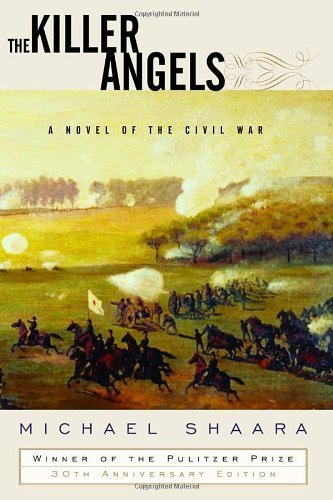In the annals of American history, the Battle of Gettysburg stands as a pivotal moment that shaped the nation’s destiny. Michael Shaara’s magnum opus, The Killer Angels, takes us on an extraordinary journey back in time, immersing us in the four bloodiest and most courageous days of our nation’s past. Through eloquent prose and rich character development, Shaara masterfully recreates the battleground for America’s fate, where two armies fought for their dreams – freedom and a way of life.
The Power of Dreams and Sacrifices:
At the core of The Killer Angels, readers are presented with a poignant exploration of the dreams and sacrifices made by the soldiers on both sides of the conflict. The Civil War was a war of ideals, and Shaara beautifully captures the essence of those ideals through the eyes and hearts of the characters. The dreams of freedom and the preservation of a cherished way of life collide on the Pennsylvania fields, culminating in an unparalleled demonstration of valour and humanity.
The Characters:
Shaara’s portrayal of the characters is nothing short of remarkable. From iconic figures like General Robert E. Lee and Colonel Joshua Lawrence Chamberlain to the common soldiers caught in the throes of war, each individual comes alive with depth and emotion. Readers are invited into their minds and hearts, experiencing their fears, hopes, and unwavering determination. These men become more than historical figures; they embody the essence of the human condition.
A Symphony of Emotions:
Reviewers have praised Shaara’s ability to evoke powerful emotions in readers. The novel is an emotional rollercoaster, taking readers from moments of triumph to heart-wrenching loss. The weight of shattered futures, forgotten innocence, and crippled beauty becomes tangible as the narrative unfolds. Through this symphony of emotions, The Killer Angels transcend the label of a war novel and become a profound exploration of the human spirit.
The Art of War:
While The Killer Angels delve deep into the inner workings of the characters’ minds, it also presents a detailed and immersive account of the Battle of Gettysburg. Shaara’s extensive research is evident as he meticulously depicts battlefield strategies and manoeuvres. The vivid descriptions of the action immerse readers in the chaos and intensity of war, revealing the true horrors and complexities of armed conflict.
The Weight of Leadership:
Central to the novel is the burden of leadership borne by generals on both sides. Shaara skillfully humanizes these historical figures, capturing the weight of their decisions and the internal conflicts they faced. From Lee’s poignant struggles with his choices to Longstreet’s reservations about the impending attack, readers gain insight into the immense responsibility shouldered by leaders during times of crisis.
A Timeless Tale:
Despite being set in the 19th century, The Killer Angels remains a timeless tale that resonates with readers across generations. Its themes of bravery, sacrifice, and the pursuit of ideals are universal and applicable to contemporary contexts. The novel reminds us of the complexities of human nature and the enduring impact of war on individuals and societies.
A Pulitzer Prize-Winning Masterpiece:
The accolades showered upon The Killer Angels are well-deserved, culminating in the prestigious Pulitzer Prize. Michael Shaara’s skilful storytelling and impeccable research earned him recognition as one of the finest historical fiction authors of his time. The novel’s enduring popularity and critical acclaim are a testament to its enduring relevance and emotional power.
Conclusion:
The Killer Angels stand as a triumph of historical fiction, skillfully blending meticulous research with rich character development to present a gripping and emotional account of the Battle of Gettysburg. Michael Shaara’s narrative weaves together the dreams, sacrifices, and leadership of the soldiers and generals, transporting readers to the heart of one of the most pivotal moments in American history. This Pulitzer Prize-winning masterpiece is a timeless exploration of the human spirit, reminding us of the enduring consequences of war and the resilience of the human soul.

